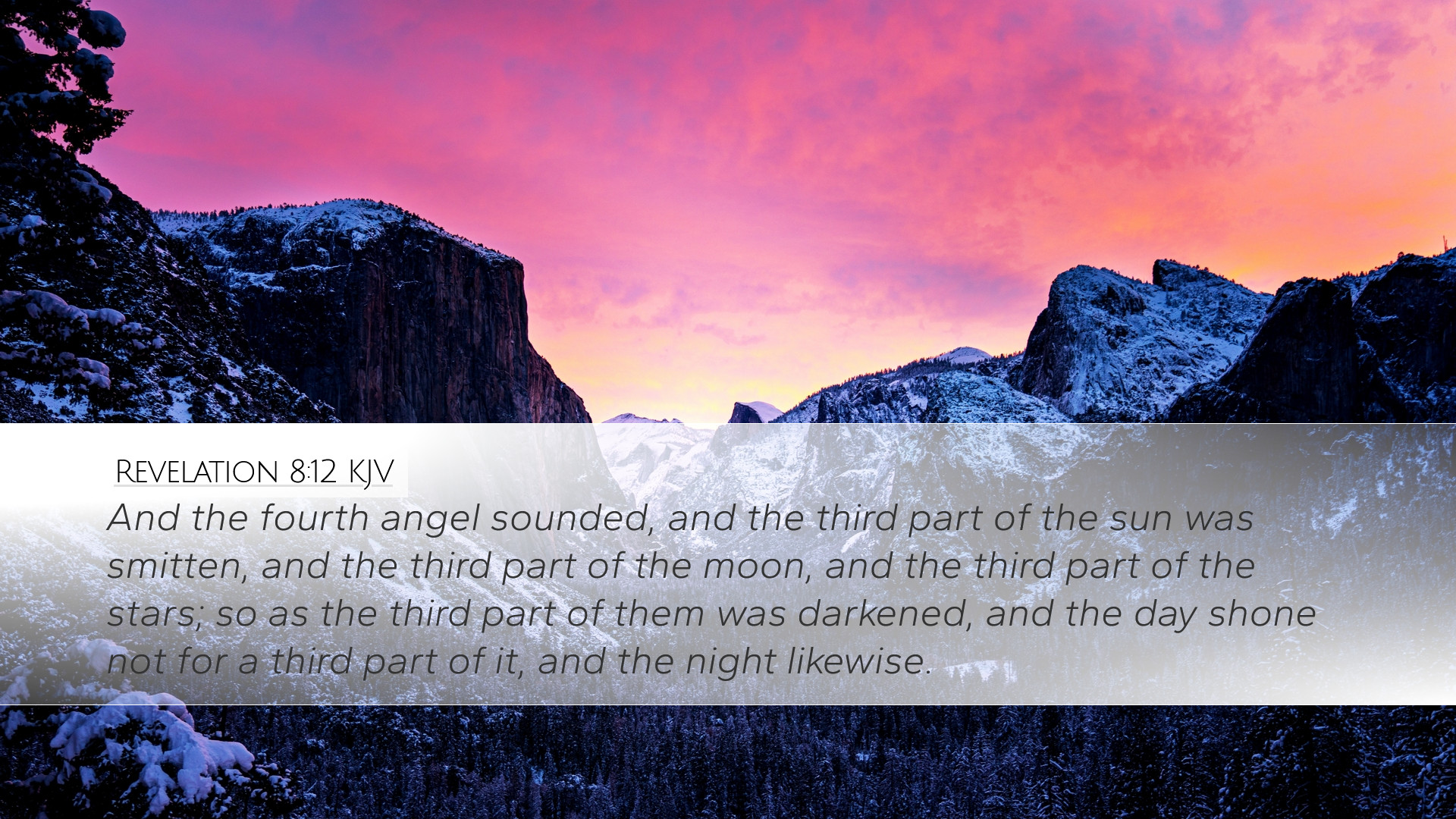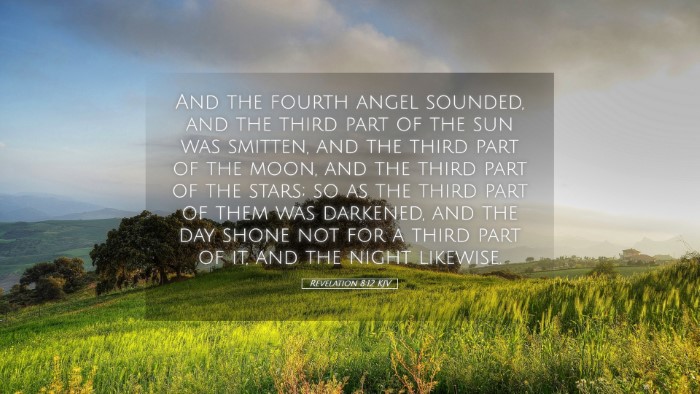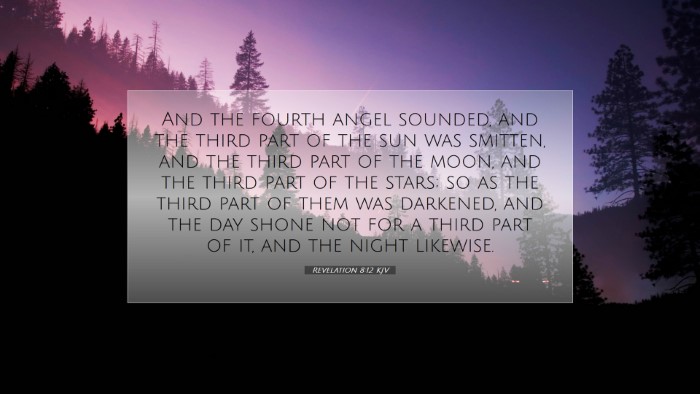Commentary on Revelation 8:12
Revelation 8:12 states:
"And the fourth angel sounded, and the third part of the sun was smitten, and the third part of the moon, and the third part of the stars; so as the third part of them was darkened, and the day shone not for a third part of it, and the night likewise."
Overview
This verse is part of the apocalyptic discourse found in the Book of Revelation, specifically within the context of the trumpet judgments. The imagery presented here reflects profound cosmic disturbances, signaling divine judgment and the unfolding of God's plan for humanity during the end times.
Significance of the Fourth Trumpet
Matthew Henry in his commentary emphasizes the significance of the fourth angel's trumpet, noting how it represents a spiritual awakening and a call to repentance among mankind. The third part of the heavenly bodies being smitten suggests a partial judgment that serves as a warning rather than total annihilation, encouraging reflection and a return to God.
The Symbolism of Celestial Bodies
-
The Sun:
Represents the source of light and life, accordingly, its smiting denotes a significant cessation of hope and guidance.
-
The Moon:
Often associated with the night and tranquility, its darkening implies the loss of peace and security.
-
The Stars:
Symbolizing guidance and promise, their dimming indicates a loss of direction and hope in a time of crisis.
Implications for Humanity
Albert Barnes elaborates on the implications of this judgment, suggesting that such cosmic events are metaphors for societal upheaval and the consequent spiritual blindness that afflicts humanity during moments of divine intervention. The darkness represents the moral and spiritual chaos that ensues when people abandon divine truths.
Theological Reflections
-
Divine Sovereignty:
This passage underlines God's control over creation, demonstrating His authority to alter the natural order as a means of judgment and redirection toward righteousness.
-
Warning and Repentance:
The partial nature of this judgment signifies God's desire for repentance rather than destruction. It serves as a precursor to deeper considerations about faith and obedience.
The Nature of Judgment
Adam Clarke provides insights into how judgments can serve multiple purposes within God's overarching plan. He posits that the darkening of celestial bodies could also symbolize the diminishing influence of the gospel in the world. As the light of Christ fades from the hearts of men, they are enshrouded in darkness, reminiscent of the spiritual state prior to divine awakening.
Metaphorical Darkness
This metaphorical darkness can be viewed in several ways:
-
The Darkness of Ignorance:
The spiritual ignorance that leads to moral decay among societies when they turn away from God's light.
-
The Darkness of Judgment:
A tangible reflection of God's judgment on nations and peoples who reject His ways, leading to destruction and turmoil.
Call to Action
It is crucial for contemporary readers, especially pastors and theologians, to understand these passages not merely as apocalyptic events but as calls to action. The darkening of the sun, moon, and stars symbolizes a period of reflection where individuals and communities are urged to re-evaluate their paths. Matthew Henry notes, "When God removes our comforts and destroys our hopes, let us see it as a call to return to Him."
Conclusion
Revelation 8:12 speaks profoundly to both present and future realities. As we explore the symbolism of the celestial bodies and recognize the implications of such divine acts, we are encouraged to pursue a deeper understanding of God’s sovereignty and mercy. This passage serves not only as a warning of coming judgments but as an invitation to embrace repentance and renewal.
In sum, the combined insights from Matthew Henry, Albert Barnes, and Adam Clarke provide a rich theological framework for understanding the complexities of Revelation 8:12 and its implications for our lives today.


